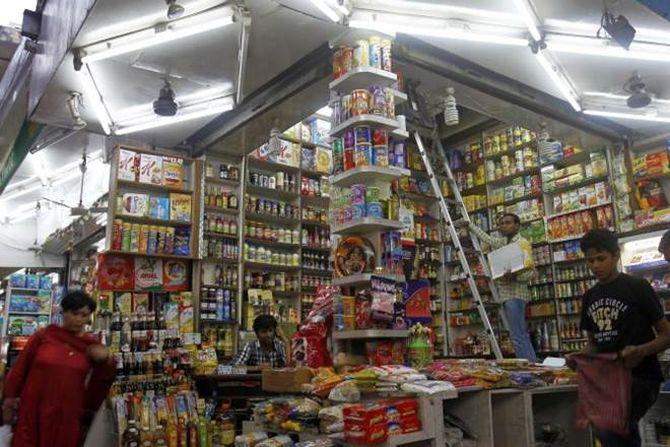Clearly, the domestic market has taken sharp knocks in April, which is likely to be visible in May as well, said analysts tracking the market, as FMCG companies are grappling with improving capacity utilisation and dealing with labour shortage.

The extent of disruption to the Rs 4.3-trillion fast-moving consumer goods (FMCG) market in India due to the Covid-19 pandemic and lockdown has now become clear.
On Friday, market research agency Nielsen said the domestic market contracted 34 per cent in April, the first full month of the curbs. Traditional trade, which contributes 87 per cent in terms of sales to the overall market, saw a bigger drop of 38 per cent in April. Modern trade, which contributes 10 per cent, slowed to 5 per cent in April. This is after modern trade reported 26 per cent growth in March and traditional trade saw 1 per cent growth.
How sharp the overall FMCG decline is can be gauged from its performance in previous months.
For the three-month period extending from December 2019 to February 2020, the growth rate, said Nielsen, of the overall FMCG market was 6 per cent. This declined to 3 per cent in March after the lockdown, first partially and then fully, was announced from the middle of the month.
If the January-March period is considered, then the FMCG growth rate was 5.3 per cent, excluding e-commerce. After adding the e-commerce sales, the growth rate improves to 6.3 per cent for the quarter, Nielsen says.
Clearly, the domestic market has taken sharp knocks in April, which is likely to be visible in May as well, said analysts tracking the market, as FMCG companies are grappling with improving capacity utilisation and dealing with labour shortage.
In a recent note, ratings agency CRISIL said it saw FMCG resilience being tested in the April-June period, with financial year 2020-21 being largely challenging for companies in the sector.
In recent interactions with the media, Hindustan Unilever Chairman and Managing Director Sanjiv Mehta and Nestlé India CMD Suresh Narayanan, said the near term was difficult, though the medium to long-term scenario for the market would improve.
“At this juncture, there are many variables at play,” Mehta had said. “A lot will depend on the trajectory of the virus, the success of the containment efforts, and the severity and duration of the economic impact.”
Narayanan, on the other hand, said the reverse migration of labour could boost FMCG sales in rural areas. “From our experience over the past two months (of the lockdown), we are identifying brands and products that have a better prospect during the crisis. This exercise is also helping us to reschedule our innovation pipeline,” he had said.
Prasun Basu, president (South Asia) of Nielsen, said he saw traditional trade rebounding as early as June. “The first two phases of the lockdown were severe owing to the nature of the crisis. As the nation got into the third and now the fourth phase of the lockdown, the curbs have eased. This will continue into June. Resurgence in traditional trade sales, therefore, could be visible in June,” he said.
Nielsen said the emphasis of consumers would continue to be on essential categories such as food and hygiene, with segments such as staples and convenience foods doing well in the next few months.
In home and personal care, essential categories such as soaps, shampoos, hand sanitisers and conditioners as well as floor cleaners and detergents would do well, while beauty and cosmetics would continue to be stagnant for some time.
Photograph: PTI Photo.












 © 2025
© 2025